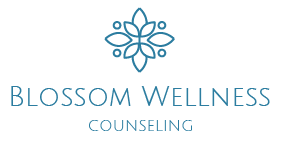Blog
Blog

Everything in Life is About Balance
Life is a constant play of different aspects that shape our experiences and define our journey. At the core of all of this lies a fundamental truth: everything in life is about balance. From the cosmic symphony of the universe to the delicate dynamics of our everyday existence, balance is the unseen force that maintains order, fosters growth, and propels us forward.
Let’s talk about the profound importance of balance in various aspects of life and reflect on how embracing it can lead to a more harmonious and fulfilling existence.
Work and Play
One of the most important areas where balance is badly needed is between work and play. In our pursuit of personal and professional success, we often take our health for granted. A healthy balance between work and personal life is not only essential for mental and physical health, but it also enhances our overall productivity and creativity.
Think about this: if you focus on professional success and neglect your family, friends, and personal interests, you either get burned out or destroy your relationships… or both. So, you may end up happy because of your professional success but that happiness will decrease because your personal life is suffering.
On the opposite side of things, if you think so much about family, friends, personal interests, and everything else except your professional life, you’ll find yourself struggling with meeting goals and maybe even be in financial troubles.
So, the key is to find that balance between work and play and stick with it. For example, you could work 8-10 hours and then use the remaining 14-16 hours for:
Personal development
Time for family and friends
Enough rest/sleep/self-care
Relationships
Relationships survive on balance. Without balance, the partnership becomes strained or may ultimately end. This applies to all kinds of relationships – friends, romantic relationships, and family.
Communication and compromise are two big C’s in relationships you must always have in your arsenal if you want to succeed. With these two C’s will come shared responsibilities, understanding, forgiveness, and all the good stuff that makes a relationship strong.
Imagine if there was no balance—you would not have communication and compromise, meaning there’s no shared responsibilities, understanding, etc. This will lead to resentment and an unhealthy relationship.
Health
Our physical and mental health requires careful attention to achieve balance. We must include nutrition, exercise, rest, and mental wellness if we want to create a healthy lifestyle. Neglecting one aspect can lead to a domino effect that will impact our overall health in a negative way.
What does an unbalanced health look like?
For example, someone who is so focused on extreme diets and rigorous exercise may compromise their mental health. It is not enough to be physically fit and healthy. You must also be mentally and emotionally strong and resilient.
On the other hand, someone living a sedentary lifestyle and poor dietary choices will develop many physical and mental health problems. You do not need to be too active to be healthy, but you do need to have enough rest, exercise, and self-care to avoid the negative effects of a sedentary life.
How to Create a Personal Balance Plan
Juggling work, relationships, health, and personal pursuits can be overwhelming, leaving many feeling drained and unfulfilled. However, with a well-thought out personal balance plan, you can take proactive steps to bring balance to your life. Follow these steps:
Step 1: Assess Your Current Situation
Before you do anything in life, take a step back and assess your current situation. This applies to creating your personal balance plan, too. You must identify the key areas of your life—such as work, relationships, health, and personal development—and consider the daily routines, habits, and stressors that come with each one. Ask yourself, “How will each aspect contribute to or detract you from your overall goal of balance?”
Step 2: Define Your Values and Priorities
To create a truly personalized balance plan, you must also identify your core values and priorities. What matters most to you? Is it family, career, health, or personal growth?
Understanding your values will help you allocate time and energy according to what truly matters to you and what aligns with your true self.
Step 3: Set Short-Term and Long-Term Goals
Set short-term and long-term goals for each area of your life. Your short-term goals will provide you with an immediate focus and motivation, while your long-term goals will create a roadmap for continued balance.
Step 4: Develop Action Plans
You can do this by breaking down your goals into actionable steps. Create realistic and achievable action plans that align with your values and priorities. If your goal is to spend more quality time with family, your action plan might include scheduling weekly family dinners or planning a monthly outing.
Step 5: Implement and Adjust
Start putting your action plans into practice. Be consistent, but also be flexible when necessary. Regularly assess your progress and be open to adjustments to your plans.
Get the support you need to create calm confidence that lasts
Get the support you need to create calm confidence that lasts
Copyright@2023 Blossom Wellness Spa, Inc.
Copyright@2023 Blossom Wellness Spa, Inc.



